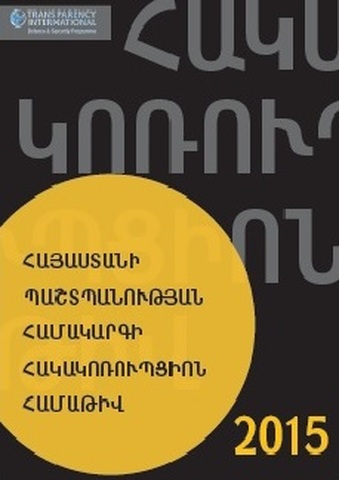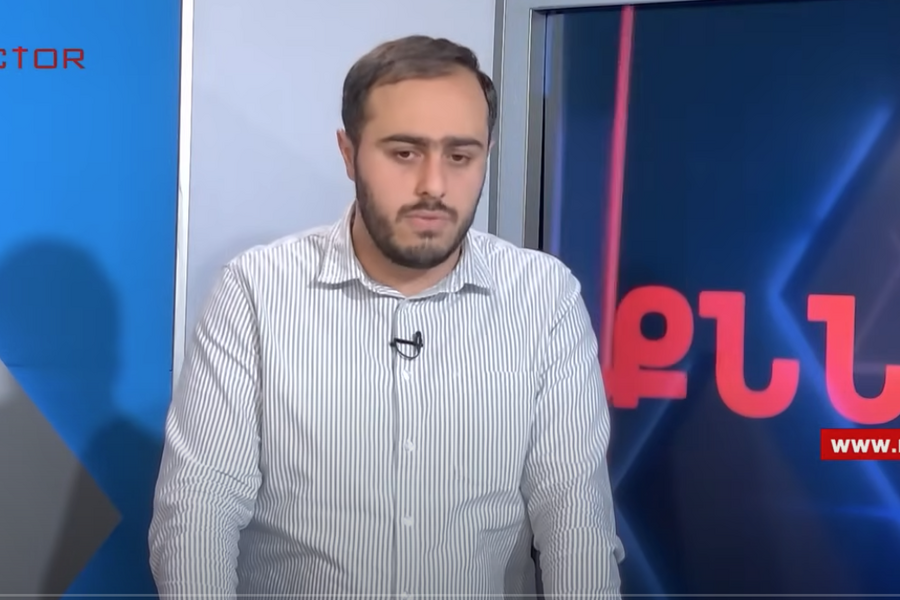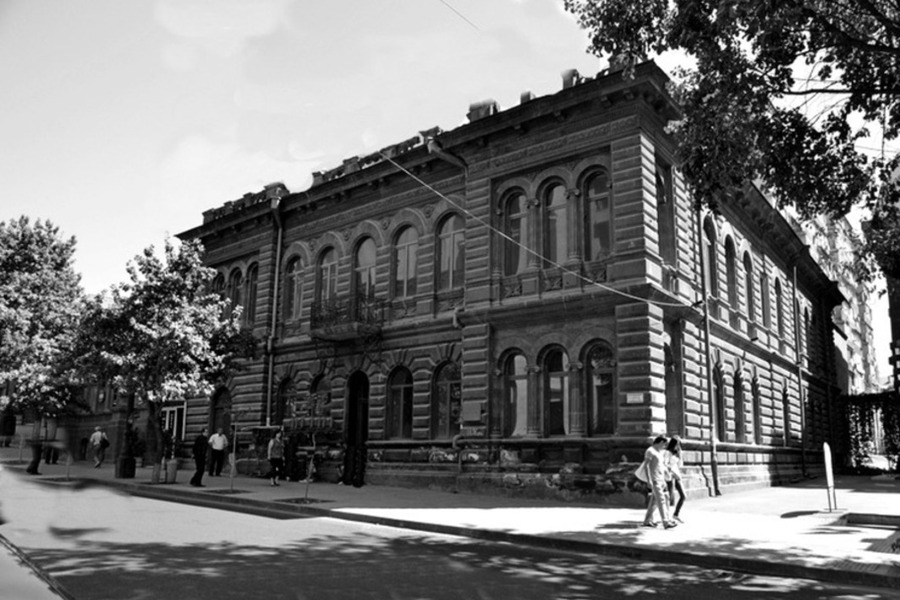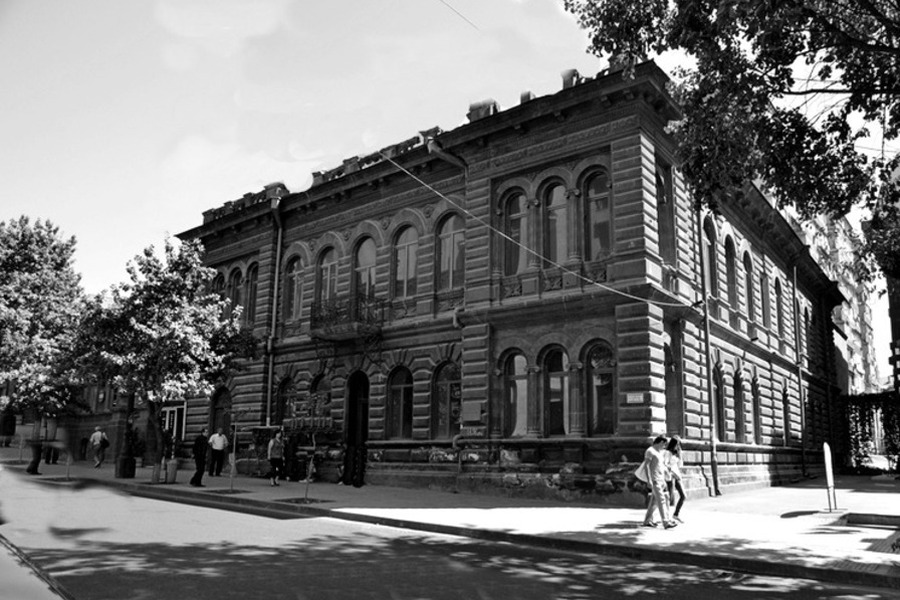2015 Government Defence Anticorruption Index of Armenia was released
Transparency International is a leading global organization establishing integrity and fighting corruption in more than 90 countries around the world. Among other initiatives TI carries out Defence and Security Program (TI-DSP), working with governments, international organizations, defence companies, and civil society - to boost integrity and reduce corruption in defence and security establishments.
TI-DSP has developed Government Defence Anticorruption Index – a corruption risk assessment method which assesses the key 5 risk areas in defence and security sector: political, financial, personnel, operations, and procurement risk. Based on the replies to questionnaire assessing corruption risks in these areas, each country was placed in a band, from A to F, corruption risks being very low in A and very high in F.
The Government Defence Anticorruption Index 2015 global study was carried out in 114 countries worldwide and mapped accordingly.[1]
The corruption risks in Armenian defence sector were assessed as part of TI-DSP “Government Defence Anticorruption Index” 2015 global study.[2] Armenian translation and publication of the research is made possible with the support of British Embassy in Yerevan through the project “Promoting the Integrity of the Defence Sector in Armenia” implemented by the Transparency International Anticorruption Center.
Armenia is ranked in Band D in the high category for corruption in the defence and security sector. The highest risk areas were Finance, Operations, and Procurement, which fell in Band E (very high risk of corruption).
Transparency, Trust and Effectiveness
Tackling corruption in defence is a stated priority of the Armenian defence leadership; Armenia is also a participant in the NATO Building Integrity programme and has completed a Self-Assessment Questionnaire. Since the armed forces rely on conscription and defence budgets are limited, robust, transparent systems are necessary to maintain trust between the armed forces and society, and to ensure that budgets are spent to maximum effect.
The Armenian government classifies a great majority of military procurement procedures and decisions, and only reveals very general information about defence budgets. Armenia’s National Assembly has few opportunities to scrutinise the defence sector: defence policy and spending have never been discussed in Parliament and significant decisions tend to be rushed through without much debate. The Standing Committee on Defence, National Security and Internal Affairs does have the power to scrutinise defence procurement in closed sessions; however, the number of sessions per year is usually low and it is not possible to ascertain the degree of scrutiny. Civil society organisations still have limited access to the Ministry of Defence and defence-related information, although the MOD has begun to participate in some civil society initiatives. This means that public oversight of and input into defence policy, procurement, and spending priorities is practically non-existent. Opening up defence planning and procurement to parliamentary and civil society input would create a firmer basis for selecting spending priorities and developing a solid base of trust in the military, which is particularly important if conscription remains the backbone of the armed forces. The Armenian government could build on previous contacts with civil society organisations – including an active contribution to this assessment and participation in some joint workshops – to put in place a more robust mechanism for regularly including input from parliament and civil society in the procurement and defence policy processes.
Commercial Activities and Conflict of Interests
There is little clarity regarding sources of defence income from sources outside central allocation. Procedures for asset disposals are not comprehensive and there is little information on how proceeds of sales are used. The MOD, as well as individual personnel, has beneficial ownership and controlling interests in a number of commercial ventures whose operations and financial accounts are not transparent. This may result in distorting the market and unfair advantages; lack of clarity over sources of income could further impede the creation of a robust process of setting priorities and allocating resources. We recommend that the Armenian MOD comprehensively publishes all sources of income as well as their destination, and that financial records of MOD-owned businesses are audited and publicly available.
Building Integrity
Armenia’s participation in the Building Integrity programme provides an opportunity to develop both an integrity plan and a systematic integrity training programme for civilian and military personnel. We recommend that comprehensive integrity training is put in place, especially for personnel in sensitive positions. Given that Armenia has provided troops for NATO-led International Security Assistance Force in Afghanistan and is a contributor to peacekeeping operations whose success can depend on their approach to corruption, integrity-related training for operational environments would improve the preparedness of soldiers and help build international relationships.
[1] Results on the global study are available at: http://government.defenceindex.org/#intro
[2] Results on Armenia are available at: http://government.defenceindex.org/downloads/docs/armenia.pdf





